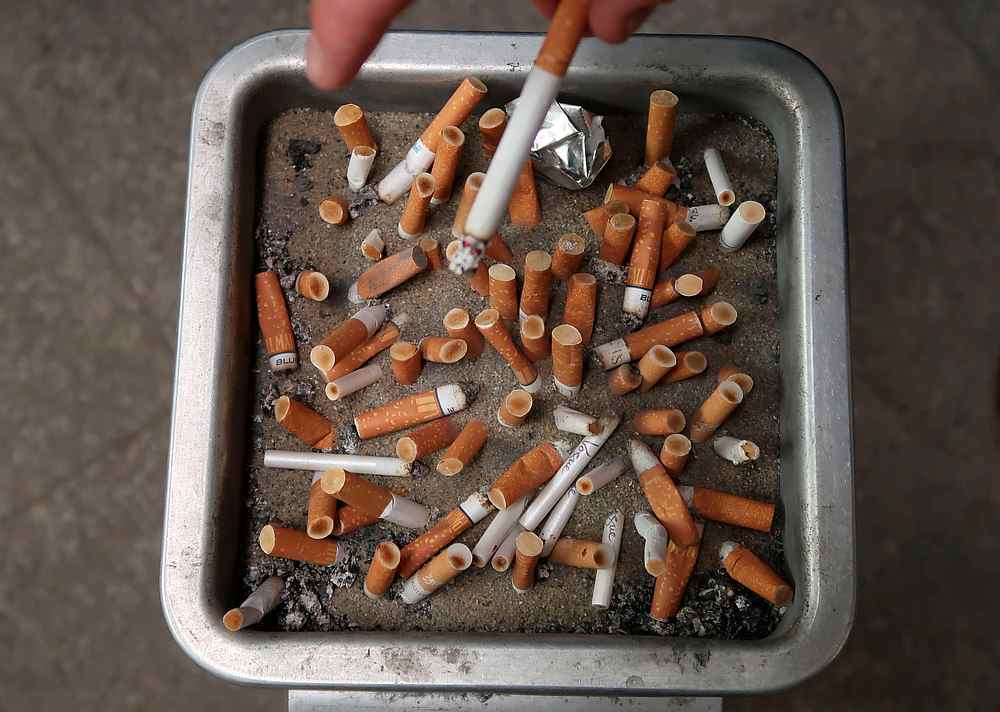KUALA LUMPUR, May 12 — To help kickstart the economy, the Malaysian government should consider certain unorthodox measures such as bringing back the Goods and Services Tax (GST) as well as reduce the excise duty on cigarettes.
Datuk Abdul Aziz Abu Bakar, president of the Malaysian Association of Tax Accountants (MATA) said this is to ensure sufficient funds for the country as revenue from income tax is sure to drop because of the sluggish economy.
“The government has sufficient funds to cover operating expenditure for a period. However, development expenditure may not be enough. As such, it needs to look into increasing its income in order to ensure economic activities can go on to help the people and nation recover.
“Therefore the government ought to look at other avenues including calls for tax reforms. It may not be politically popular but it would help with economics.
“The government may want to consider reintroducing GST, but at a lower percentage at say 3 per cent. This way, everyone will be contributing a bit to help to strengthen the government’s fiscal position,” he suggested in a statement today.
Pointing out that income tax forms the largest component of the country’s revenue at more than 50 per cent of the nation’s coffers annually, Abdul Aziz noted however that many companies have been unable to operate or are running at a lower output during the Covid-19 pandemic.
Abdul Aziz said that companies and those receiving salaries will be paying less taxes while the unemployed will be paying zero income taxes.
Against such a backdrop, Abdul Aziz said Malaysia needs to trade to survive and needs to continue exports for fiscal balance, unlike other countries like China, India and Indonesia that have bigger populations which translate into larger markets of local consumption.
He pointed out that the GST is a more broad-based tax system compared to the current Sales and Services Tax (SST), noting: “In the Malaysian context, GST is a cradle-to-grave tax that would cover 60 per cent of the Consumer Price Index (CPI) Basket of Goods and Services, as compared to SST that is taxable on only 38 per cent of the CPI Basket of Goods.”
The GST was introduced in Malaysia on April 1, 2015 at a tax rate of six per cent to replace the SST tax regime, which then prime minister Datuk Seri Najib Razak repeatedly defended as an unpopular but right move.
After a three-month tax holiday with the GST zero-rated when the Pakatan Harapan government took over, it was then scrapped and replaced by the SST on September 1, 2018 with a six per cent service tax and a sales tax at a range of five to 10 per cent.
Plugging the leak in illegal trade

Abdul Aziz said the Malaysian government could also potentially increase its revenue by tackling the “shadow economy” or black market valued at an estimated RM300 billion or equivalent to about 21 per cent of Malaysia’s GDP.
He noted that demand for illicit cigarettes in Malaysia was recently reported as having increased during the movement control order (MCO) with legitimate manufacturers disallowed from distributing cigarettes, with illegal cigarette syndicates allegedly intensifying their use of e-commerce and social media platforms coupled with e-hailing and courier services to meet the increased demand.
“The illicit cigarette trade costs the government approximately RM5 billion annually. If we are able to reduce it by half, we are looking at RM2.5 billion in revenue on excise duty alone.
“As such, the government should consider lowering excise duty on cigarettes and similar contraband items, to help narrow the price gap between licit and illicit ones.
“However, there are limitations as it is hard for licit manufacturers to match the price of illicit products. Operational cost of smuggled items are very much lower,” he said.
Abdul Aziz said that such a move to lower the tax on cigarettes must however be paired with enhanced surveillance and tightened enforcement to stop smuggled goods from entering Malaysia in the first place.
“We laud the good work enforcement authorities are doing with ground patrol and border controls now. But we need to up our game by increasing cross border collaborations with regional and international authorities dedicated to battling illicit trade both on land and sea,” he said.
“Stopping such leakages greatly helps increase revenue. Financially better positioned, the government won’t need to impose new taxes but be able to help companies by introducing more incentives such as a double deduction tax. Businesses which hire retrenched workers could then be made eligible for this (double deduction tax)”, he explained.
“It is time Malaysia put a stop to criminals hurting job prospects for our law-abiding citizens and foreign talent who dutifully pay taxes. We need to send the right message that Malaysia is not only open for business, but that we are here to protect our investors with good governance, structured tax incentives and legal enforcement,” he added.
The rate of excise duties for cigarettes has long been a topic of debate, with high tax rates seen as a way for the government to pursue its goal of curbing the smoking habit, while tobacco companies have argued that high tax rates would encourage illegal trade and cigarette smuggling that would result in revenue loss to the government.



















